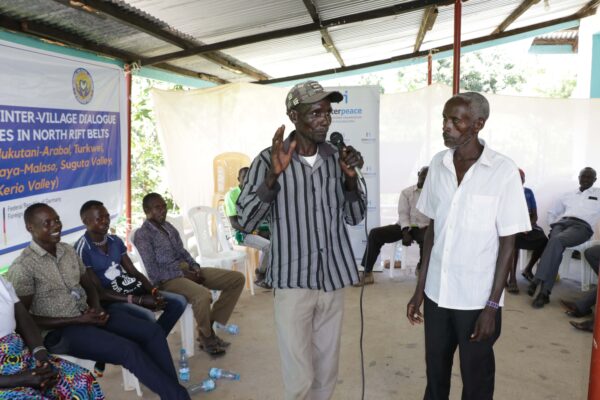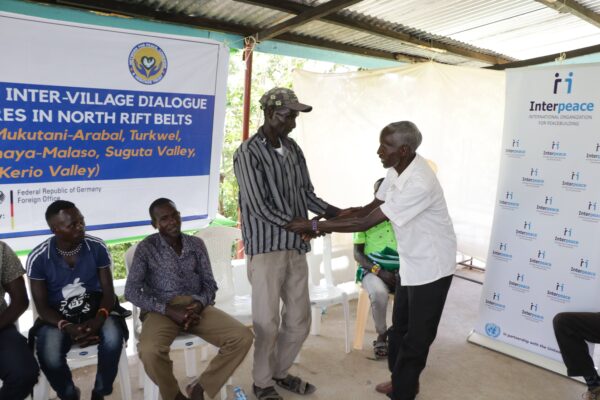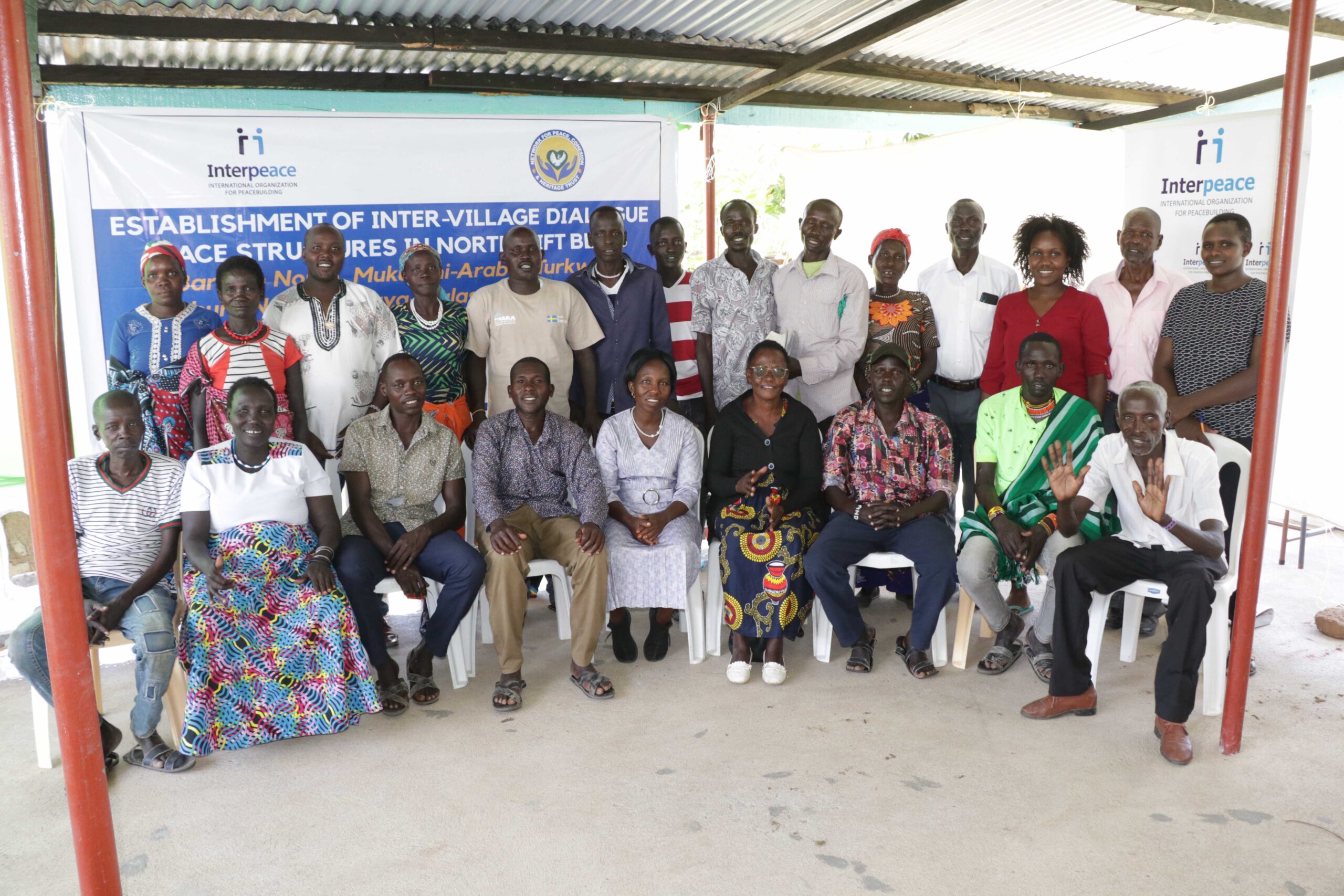A friendship restored through the formation of a dialogue space in Kenya's Kerio Valley
In the Kerio Valley in Kenya's North Rift Region, two former close friends, Francis, a Marakwet, and Johnstone, a Pokot, were once united in their agricultural pursuits and shared common goals. However, as conflicts escalated in the valley, their friendship deteriorated, leading to unrest within their communities.
For ten years, Francis and Johnstone lived physically and emotionally apart. Their bitterness eroded their relationship, leaving behind broken dreams and unfulfilled promises in their agricultural pursuits.
The conflict between the Pokot and Marakwet communities in the Kerio Valley belt is mostly linked to fights over pasture and water, animal theft disputes, revenge and counter-revenge attacks, and tribal clashes. This conflict has hindered development, caused insecurity, and resulted in violence. Local peace committees play a crucial role in promoting peace. However, achieving lasting peace in some areas remains challenging, highlighting the importance of community engagement to address drivers of conflicts and foster sustainable peace and development.

Their fate changed with the creation of the Mikeu-Sagat Inter-Village Dialogue Spaces (IVDS), the immediate structure on the conflict belt that responds to violent incidents. The IVDS was established by Interpeace and the Network for Peace, Cohesion, and Heritage Trust (NEPCOH) and funded by the German Federal Foreign Office (GFFO). Francis and Johnstone embarked on their journey towards reconciliation by attending the IVDS meeting at St. Abraham's Catholic Church in Endo on 16 March 2024, with a mix of anticipation and unease.
Inside the church, Francis and Johnstone confronted their past, burdened by regrets and unspoken apologies. Despite their history of conflicts, they glimpsed a flicker of the bond that once united them. As they embraced, memories resurfaced, revealing a connection that went beyond tribe and ideology. In that decisive moment, they rediscovered their shared humanity amidst the aftermath of conflict, becoming symbols of hope in a landscape scarred by division and distrust.
Expressing his gratitude for the encounter, Francis shared, "As a farmer from Kasegei, I have fond memories of working the land alongside my dear friend Johnstone. We had plans to cultivate maize and then venture into tomatoes. Conflict separated us like heaven and earth. Today, through this village dialogue initiative, we have been reunited, and I am overjoyed. I intend to return home and discuss with my family and elders how we can move forward together." Addressing Johnstone directly, Francis added, "Johnstone, my friend, I look forward to the day when we can once again work side by side on our farms. During the years we were apart, I often thought of you and your well-being. I even prayed to God that we would meet again. My prayers have been answered, and heaven and earth have been reunited."

Today, Francis and Johnstone stand united as members of the Mikeu-Sagat IVDS committee, committed to rebuilding the bridges destroyed by hatred and animosity. Their journey is one of forgiveness and reconciliation, showcasing the transformative power of dialogue and understanding.
In the Kerio Valley, Interpeace and NEPCOH are establishing IVDS to mediate conflicts and prevent further escalations between clans. IVDS has also been set up in various corridors in Kenya's North Rift and North-eastern regions. For instance, in the North-eastern region, Sala-Jabi 2 Corridor has four dialogue spaces, the Banisa Corridor has five dialogue spaces, and the Takaba Corridor has four. The Kerio Valley's Mikeu-Sakat IVDS is the first IVDS structure being created in the North Rift region, and the team is foreseeing the creation of over 20 spaces in the coming months. These spaces, as well as other peacebuilding structures in the regions, such as the Conflict Monitoring Committees (CMCs), serve as platforms for open conversations, conflict resolution, and trust-building among diverse communities, making significant contributions to the region's sustainable peacebuilding efforts.
Hassan Ismail, the Country Representative of Interpeace in Kenya, emphasises the importance of locally driven solutions, stating: "Interpeace strives to create and execute community-driven solutions. Through regular meetings and sustained dialogue in IVDS, local communities empower themselves to work towards long-lasting peace and reconciliation. IVDS demonstrates the power of grassroots initiatives in building a brighter future."
The reunion of Francis and Johnstone symbolises hope and resilience in the face of adversity, resonating with those impacted by conflict and offering hope during challenging times. Despite the challenges they encounter, their unwavering dedication to promoting peace in the Kerio Valley motivates them to engage in dialogue and community efforts, one village at a time.
Learn more about Interpeace's holistic approach to building sustainable peace. Click here to access our "Livelihoods for Peace" paper, which explores how fair access to livelihood opportunities, social cohesion, and inclusive development are essential for lasting peace in communities like the one featured in this story.

